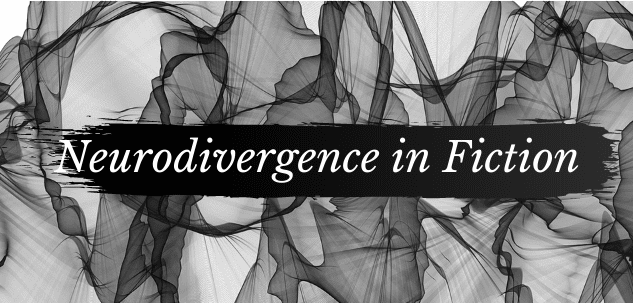
Hello all, and welcome to this week’s article for FanFiAddict’s series on Neurodivergence in Fiction. I cannot understate how appreciative I am for the overwhelming amount of support and enthusiasm I have seen for this series of mine; thank you! For the next several months we will be bringing you a guest post every Wednesday from a neurodivergent author. This will hopefully highlight some of the challenges that come with writing for a largely neurotypical audience, while also giving valuable insight to the craft itself and providing a window into the neurodivergent experience — at least through the lens of fiction. For this week’s article, FanFiAddict’s resident author, Connor, pens an open, powerful look at the publishing industries inherent biases against neurodivergence.
And, without further ado, the article.
I never used to write about autistic characters. I never used to think of myself as disabled, really.
I was raised to view myself as high functioning; those magical two words you’re encouraged to chase for the approval of those whose acceptance of you remains utterly conditional on your ability to steer attention away from the truest parts of you. And while I understand we are meant nowadays to be eschewing these hierarchical and capitalistic terms that divvy up autism into branches of relative utility, the fact remains that functionality provides, for the purposes of this essay, a decent framework to dissect what I was taught to believe. To determine why the people around me could not stop inundating me with this belief that I was basically neurotypical, save a few quirks.
I was told to treat myself as basically the same as anyone else. I was taught during school, that seeking help for my mental health from the teachers responsible for my IEP (Individualized Education Program—most people know it as “the special class”, where students with learning disabilities go when needing further academic support) was a shameful thing, best avoided. At least outside of the predetermined hours, that is.
Especially since I could be spending those hours sitting in class, mouth hanging open as my mind sought refuge in the turning of my thoughts, rather than face the daily degradation of my brain as it buckled beneath the weight of overstimulation; while a thin line of drool conjured up by the antipsychotics the psychopharmacologist prescribed in order to suppress all unwanted behavioral qualities made its slow descent down my chin without my noticing.
You know. Staying productive.
Because there wasn’t any difference between me and the average normal, neurotypical kid. Not really. Not when you think about it. I just had a couple tweaks. A few quirks. Same as anyone else. We’re all wired a bit differently, right? Everyone’s a little crazy, aren’t they?
So I was taught. And so I was treated.
It’s only in the last few years, which I’ve spent coming down from the deluge of prescription medications doctors have shoved down my throat for the last fifteen years, that I’ve begun to learn this is not the case. That I am perhaps not as capable of meeting the demands the world often asks of most men.
I have only begun to navigate what that means.
It is important at this time to note that this would not make me—or people like me—any lesser, unless approached from a hierarchical lens. To imply as much would imply the worth of a person comes from their productivity to an economy. It is an act of saddling self-worth to the sacrifice of the brain and the body.
I, and people like me, am only lesser if you believe there is a standard of normalcy and functionality we ought to strive for. One that, by the very act of defining it, would make it impossible to meet, even for those who like to think of themselves as normal. The very terms are enmeshed in the mires of eugenics and all other acts of putting price tags on a life.
So.
With that in mind.
Publishing.
* * *
Shortly after Michael Eisner assumed control of the Walt Disney company, he set to paper what is now considered his ethos, and the reason he made the company so successful. “We have no obligation to make art. We have no obligation to make history. We have no obligation to make a statement. But to make money, it is often important to make history, to make art, or to make some significant statement. We must always make entertaining movies, and, if we make entertaining movies, at times, we will reliably make history, art, a statement or all three. We cannot expect numerous hits, but if every film has an original and imaginative concept, then we can be confident that something will break through.”
This is the ethos of all book publishing. And I do mean all. I’m not here to waste precious ink and purple prose on the moral superiority of indie or self-publishing. I will not wax lyrical about how we need or do not need gatekeepers to help find trueart.
This is an indisputable truth of the publishing industry in all its forms. It cannot—it is not capable—of caring about marginalized writers.
* * *
I spent last summer gearing up to query agents for the first time. I wanted to sign with an one more than I’ve wanted most things in my life.
And then I started.
God willing, I hope I never have to again. I’ve always had a degree of intolerance to uncertainty.
It is a product of a mind mechanized for paranoia. A mind that cannot chain the furies of intense emotion for too long without smothering them in definitions and linearity and stark, cold calculations. It kills cares, worrying away at every blurry line and unknowable facet until it’s gutted the very concepts it cares about, reading the entrails for any sign of certainty.
I had a lot of friends who asked me how the querying went.
“I dunno,” I said. “The wait time stresses me out.”
I suspect they did not take to my true meaning. Sometimes I doubt they ever could.
And sometimes, I see authors warn other writers that if they cannot handle querying, they’re not ready for traditional publishing. They tell me everyone gets stressed out querying. So don’t worry!
And then I wonder if everyone else also worries about all the cancers they qualify for after all those decades spent so ruthlessly enmeshed in saccharine-sick solutions the pharmaceutical industry has to offer.
I’ve never asked.
* * *
Most people are not aware that there are a couple kinds of anxiety disorders. Most people think they involve a mere uptick in your worries. A game of excited integers scaled up. Most people think the those who own one are just a smidge more anxious than the rest of us. The rest of them.
Most people have no idea what they’re talking about.
An anxiety disorder is not mere worry dialed up to eleven. It’s closer to the second cousin of psychosis. The bone-deep feeling of a fractalizing mind hyperaware of its own crumbling, overextending web of worries. Yet it cannot help but tear itself apart. That is, after all, all it knows how to do.
That’s what happens when you search for certainty. That’s the trick. You think you’ll find it at the worst possible conclusion. You make a home there, stockpiling and preparing and creating plans and drama and fear—the very act of which manufactures more uncertainty. It is the act of arriving at rock bottom with a jackhammer. Distorting your perception—and the way you perceive others, perceiving you.
And its most fertile ground is the lack of information.
* * *
I talked to a couple people in publishing last year. One of them asked me how my querying was going. “I don’t get many answers,” I told them. “That makes it difficult to know how to feel. My mind tends to have a field day with that.”
“Oh same. I know exactly how you feel!”
I wondered how to ask them if they really did. I had no idea if they were neurodivergent. And I knew too well the dangers of explicit asking—that first step on the path towards certainty.
I told this same writer, later on, that I mentioned in my query I’m disabled.
They advised I take that information out. Adding, “Unless that kind of thing’s important to your plot.”
I wonder if they’d say the same of queer authors. I doubt it. The insinuation, as I took it, was that publishing views disabled writers as hard to work with.
Even now it’s difficult to be upset.
After all, they’re not wrong.
* * *
Self-publishing is often touted as a cure. Less wait times and uncertainty—and more creative freedom. If you can pay for it.
Nobody likes to talk about the size of that if.
Sometimes social security seems like a reflection of the autocannibalistic spirals my mind turns in. The rules are swimmy, clouded in an inky haze. But they don’t often dole out much, if you can get on it at all. Best not have over $2,000 in assets, either. Or they will take it all away again, and bill you for the inconvenience.
When querying ended without an offer (thank god—the wait beyond that point were fertile grounds for a goddamn nervous breakdown), I had to find a way to pay to publish—without $2,000 to my name. And I was lucky. The only reason I am on social security at all is due to a quirk even I do not fully understand. That aside, I’m white, I’m a man, I was diagnosed with my disorders young. (Perhaps that explains the overmedication. Maybe doctors listen to white, middle class boys with behavioral problems a bit too well.)
I do not have to pay for much in my life. I don’t really have that much to pay with. But I am lucky enough to live with people willing to take care of this.
So how does a neurodivergent writer self-publish if they must also hold down a job. How do they retain the mental bandwidth to do that? How do they even write? Let alone publish and market and make connections, as is asked of them.
Not all of us are the same. I assume such things are easier for some than others. And all challenges are as diverse as we are.
Self-publishing, and indie publishing, is far more communal, too, based on reputation. Sometimes I wonder how difficult it is to navigate such concepts as sticky as reputation when you cannot trust the cues given to you.
I am admittedly leery of the talk of self-publishing as more meritocratous than its traditional counterparts. It is often said that self-publishing permits more control. And while that may be generally true, sometimes I think of how many peripheral elements of life must also be in your control to make the decision to choose this path in the first place.
But what is a neurodivergent writer to do? Either way comes with limited options, and uncertainty. And do not think to ask for any accommodations.
* * *
I only mentioned accommodations once.
The author I was speaking to seemed to squirm. “I don’t think that’s a good idea,” they said. And they were right. Most people cannot decide whether they’d rather view us as lesser beings worthy of pity, or normal people given unfair advantages.
Publishing often chooses the latter path, I think. There is a sense that we all must be a little fucked up to get in. It’s a sentiment firmly entrenched in the roots that bind the artist to their suffering—the belief that one only makes art when something is wrong.
And to be sure, there is a correlation. But this correlation often seeks a balance. You can only be imperfect in the right ways. You are permitted to be neurodivergent, but do not ask for accommodations. If I can do it, so can you, many say. They accept neurodivergent writers, but not if they’re going to make A Thing™ about it. And they must perform (as most neurodivergent people must perform) a certain level of functionality.
And god help you if you ever step out of line.
* * *
A while back, a neurodivergent writer was talking about the way their disability affects their craft. Not long after, an editor at a major publishing house, who shared a diagnosis with the author, claimed that applying such a struggle to a broad swath of people was downright infantilizing.
To an extent, I caught myself agreeing. No one narrative is enough to contain the experiences of neurodivergency in publishing.
But then, I also caught myself wondering why this editor felt the need to compare less “functional” neurodivergent people to children. Why say, “We’re all a little fucked up in this industry. But none of us are that fucked.” What does it say if an editor’s advocacy is toeing such lines? “Yes, a lot of us are disabled. Yes we struggle. But we’re not like those less functional ones. You know? The ones who think and act like tiny babies?”
It was understandable to an extent. I’ve thought I was high functioning before, and I’d be lying if I said I never bristled at overgeneralizations, not wanting the dominant culture to turn their cruel eye on me.
But I’ve been thinking a lot about how well I function a lot lately.
The comment flew under the radar. Nobody talked about it.
I want to give all this all a happy ending. I don’t know if I can.
This system was not built to permit us.
About the Author
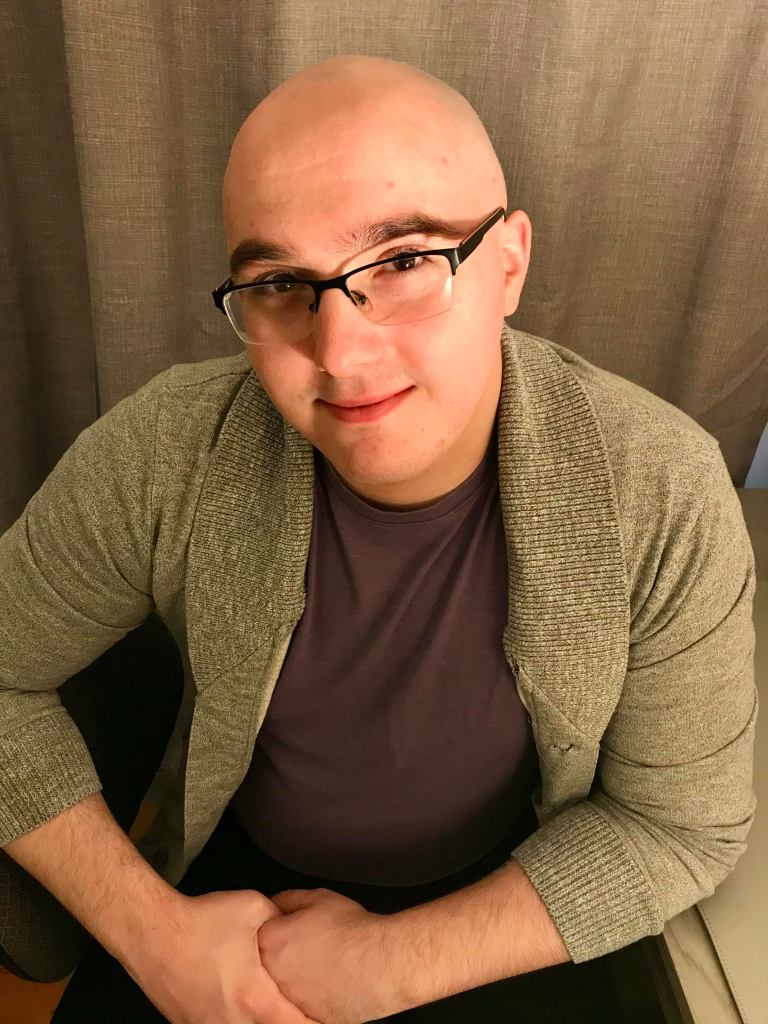
C.M. Caplan is the author of The Sword in the Street. He’s a quadruplet (yes, really), mentally disabled, and he spent two years as the Senior Fiction Editor on a national magazine – while he was still an undergrad in college.
He has a degree in creative writing from Salem State University and was the recipient of the university’s highest honor in the arts. His short fiction also won an Honorable Mention in the 2019 Writers of the Future Contest.
Caplan’s introduction to fantasy came through J. R. R. Tolkien and George R. R. Martin. He has a tattoo that roughly translates to Valar Morghulis, as written in Tolkien’s Elvish script, in an acknowledgment of that fact. Other influences include Robin Hobb, Ellen Kushner, N.K. Jemisin, Katherine Addison, John Irving, Ann Petry, K.S. Villoso, and Neil Gaiman.
He currently lives in New England, where he works remotely for a social justice theater company.
Order The Sword in the Street here. Or, add it to your Goodreads shelf here.
Follow C.M.’s exploits on Twitter – @thecmcaplan. Or, see his reviews on FanFiAddict here.

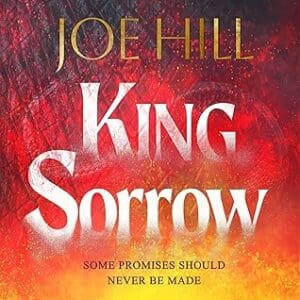
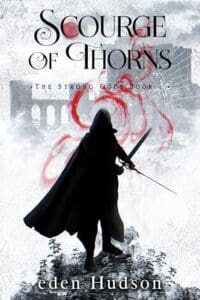
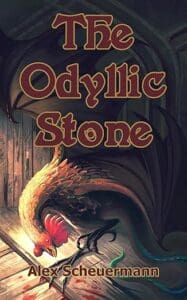
Leave a Reply